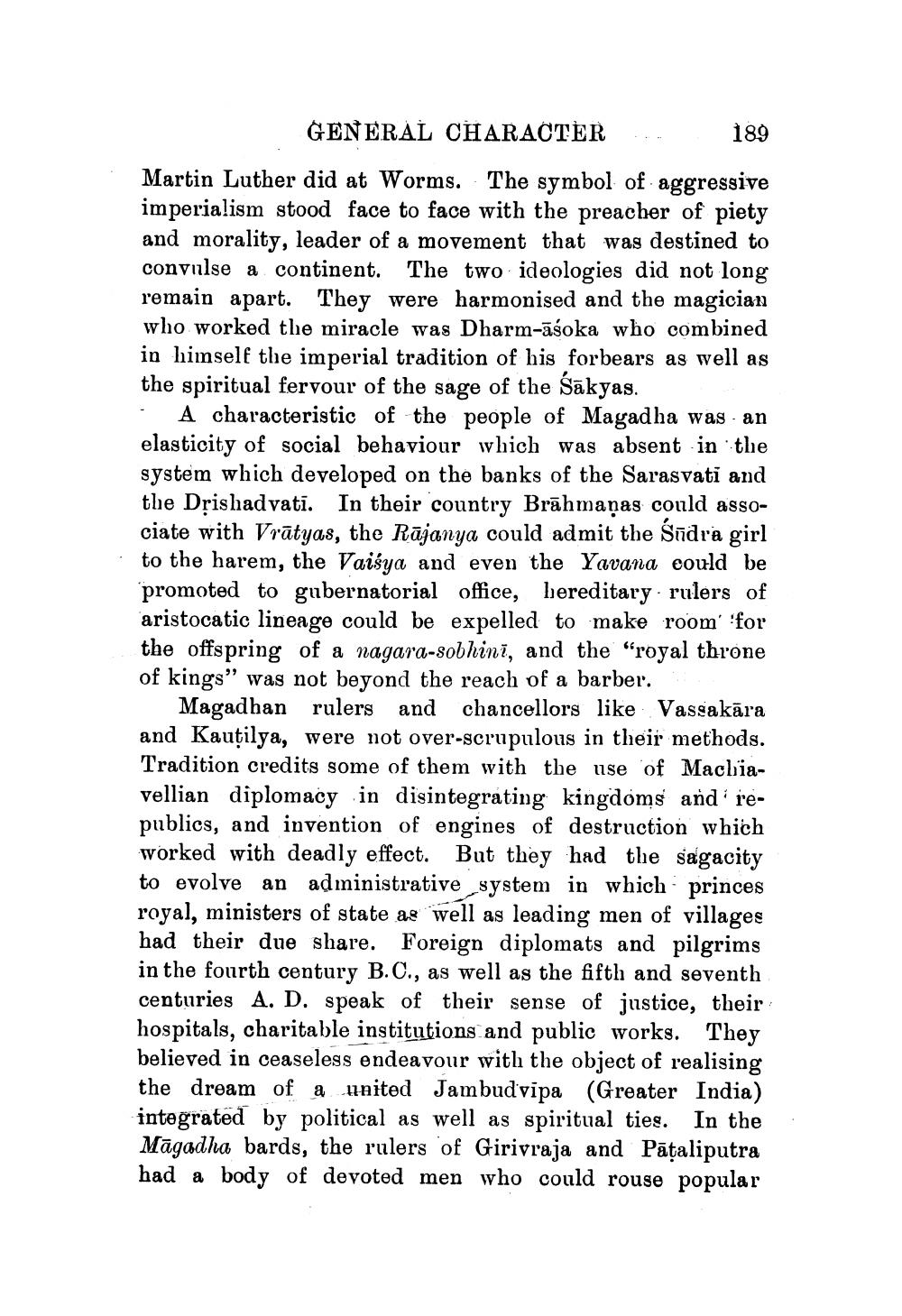________________
GENERAL CHARACTER .
189
Martin Luther did at Worms. The symbol of aggressive imperialism stood face to face with the preacher of piety and morality, leader of a movement that was destined to convulse a continent. The two ideologies did not long remain apart. They were harmonised and the magician who worked the miracle was Dharm-āsoka who combined in himself the imperial tradition of his forbears as well as the spiritual fervour of the sage of the Sākyas. • A characteristic of the people of Magadha was an elasticity of social behaviour which was absent in the system which developed on the banks of the Sarasvati and the Drishadvati. In their country Brāhmaṇas could associate with Vrātyas, the Rājanya could admit the Śūdra girl to the harem, the Vaiśya and even the Yavana could be promoted to gubernatorial office, hereditary rulers of aristocatic lineage could be expelled to make room for the offspring of a nagara-sobhini, and the "royal throne of kings” was not beyond the reach of a barber. ..
Magadhan rulers and chancellors like Vassakāra and Kautilya, were not over-scrupulous in their methods. Tradition credits some of them with the use of Machiavellian diplomacy in disintegrating kingdoms and republics, and invention of engines of destruction which worked with deadly effect. But they had the sagacity to evolve an administrative system in which princes royal, ministers of state as well as leading men of villages had their due share. Foreign diplomats and pilgrims in the fourth century B.C., as well as the fifth and seventh centuries A. D. speak of their sense of justice, their hospitals, charitable institutions and public works. They believed in ceaseless endeavour with the object of realising the dream of a united Jambudvipa (Greater India) integrated by political as well as spiritual ties. In the Māgadha bards, the rulers of Girivraja and Pāțaliputra had a body of devoted men who could rouse popular




